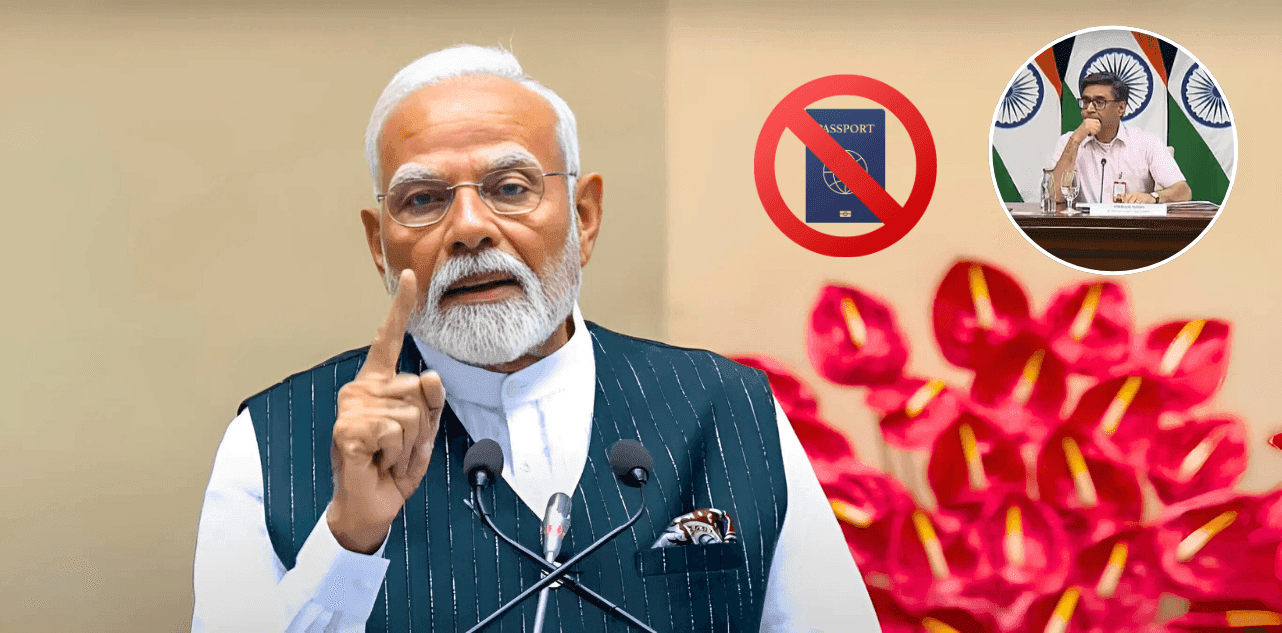Tuesday 17 February 2026
India Strikes Back After Pahalgam Attack: Borders Shut, Water Treaty Suspended, Visas Cancelled
Share

In an unprecedented and swift move, the Indian government has taken a series of stringent steps against Pakistan after the dastardly Pahalgam terror attack in Jammu and Kashmir, where 26 people were brutally murdered. The Centre announced the steps on Wednesday after an emergent CCS meeting chaired by Prime Minister Narendra Modi.
"CCS condemned the Pahalgam attack in the strongest terms and expressed its deepest condolences to families of victims," said Foreign Secretary Vikram Misri at a press briefing. These remarks set the tone for what would follow — a package of diplomatic and military decisions that demonstrate India's zero-tolerance stance toward cross-border terrorism.
The terrorist strike that killed civilians from both local and foreign tourist groups caused PM Modi to end his Saudi Arabian visit and return home to New Delhion Wednesday morning. The meeting of the CCS team ran beyond two hours with participation from senior ministers alongside security officials.
During the press briefing, Foreign Secretary Misri declared, "Pakistani visas will be cancelled while the Wagah-Attari border will be closed with immediate effect. Moreover, the Indus Waters Treaty between the two countries will also be suspended with immediate effect." These are some of the most severe actions India has taken diplomatically against Pakistan in recent years.
1.Suspension of the Indus Waters Treaty: India has placed the Indus Waters Treaty of 1960 in abeyance with immediate effect. This treaty, a key water-sharing agreement between India and Pakistan for over six decades, is now effectively paused, indicating the gravity of India’s response to the terror incident.
2.Closure of the Wagah-Attari Border: The Integrated Check Post (ICP) at Attari has been shut down immediately. Indian authorities have specified that individuals holding valid travel endorsements may use this route to return to their respective countries until May 1, 2025. The closure severs one of the most prominent land connections between the two nations.
3.Cancellation of Pakistani Visas under the SAARC Agreement: India has revoked the SAARC Visa Exemption Scheme (SVES) for Pakistani nationals. All previously issued SVES visas are now considered canceled, and Pakistani citizens currently in India under this scheme have been given 48 hours to leave the country. This measure halts a key regional cooperation mechanism.
4.Expulsion of Defence Advisors from Both Nations: India has declared the Defence, Naval, and Air Advisors stationed in the Pakistani High Commission in New Delhi as Persona Non-Grata. They have one week to leave. In a reciprocal move, India will withdraw its own military advisors from the High Commission in Islamabad, along with five support staff members from both sides.
5.Reduction in High Commission Strengths: The overall staff strength of the High Commission in both countries will be reduced from 55 to 30 by May 1, 2025. This significant scaling down of diplomatic personnel underlines the current freeze in bilateral engagement.
The collective steps are designed to apply diplomatic and logistical pressure on Pakistan while signaling a new phase of response to terrorism. The government’s message is clear: acts of terror will invite not only condemnation but direct and consequential actions.
Analysis indicates that these steps will permanently transform the relationship dynamics between India and Pakistan while affecting trade levels and water distribution as well as diplomatic approaches and the stability of the region. The global mediators and the World Bank will probably pay attention to the suspended Indus Waters Treaty because it was originally brokered by this institution.
The government move serves as both a symbol and strategy due to public outrage and the deep shock experienced across the nation following the attack. India exhibits a substantial diplomatic stance change through this action while advancing its diplomatic position to greater heights.
Every citizen throughout the country follows the steps' development because they expect the arrival of justice and permanent peace that has eluded this violent region for too long.
Newsletter
Stay up to date with all the latest News that affects you in politics, finance and more.